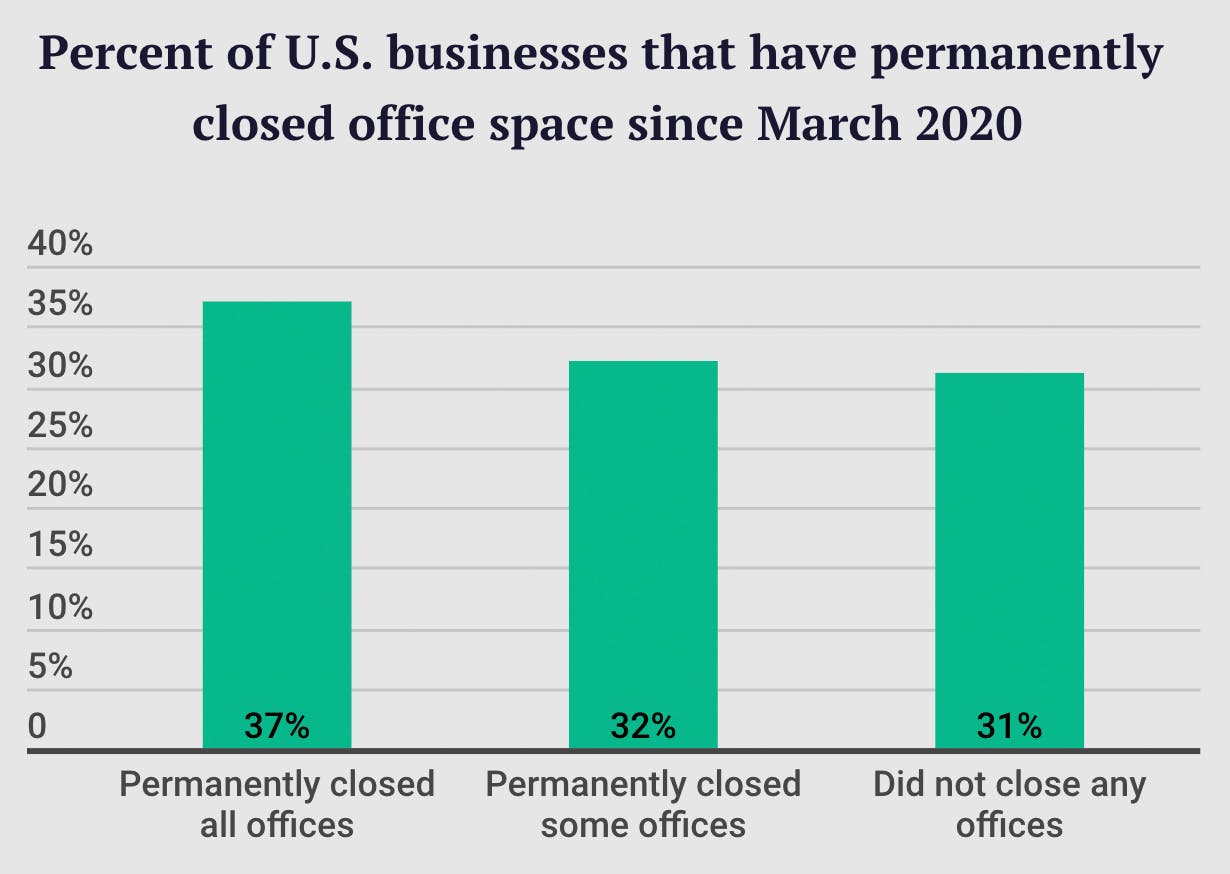
Remote work is here to stay
I have not managed an engineering team in person since 2014, with the exception of a few terrible weeks in the beginning of 2019. Up until COVID-19 (for the US this would be 2020), I had great success recruiting software engineers remotely. The number of remote jobs was a small percentage of those available which provided a nice advantage in recruiting conversations. All I had to do was reach out and say "hey we're doing X and we're remote, do you want to chat?" The response rate was amazing, I never used a recruiter to fill a single role in approximately seven years.
Every single person I hired remotely between 2014-2020 had previously worked remotely and preferred working remotely. The vast majority were interested in a greater quality of life, less commuting, and more privacy (not working in a shared pod).
With the advent of COVID-19, many businesses were forced to embrace remote work. This dramatically changed the playing field; now not only was there an abundant of jobs available but thanks to inflation-care, it seemed as if every company was in growth mode. Remote workers were in high demand and the number of remote jobs available went through the roof. This was a great time to be a remote worker and made recruiting in 2021 and 2022 very difficult due to increased compensation expectations.
Now as spring 2023 is approaching, many businesses are pondering whether to return to an office (RTO) or remain a distributed HQ. At the same time, we've been seeing layoffs in the tech industry for almost a year now, with no sign of slowing down. This has led to a lot of speculation about whether remote work is here to stay or if we'll return to the office.
I asked one engineering manager who leads a team of ten whether they were going to return to an office or not and they said:
“There is absolutely no way we are going back to an office; it's completely impossible to get everyone back, forget about it.”
I was surprised to hear this because they were very adamant about working in the office before COVID-19. This is not an isolated incident, I've heard similar stories from engineering managers at small startups to large enterprises such as Amazon.
I believe the working landscape has permanently changed for a few reasons.
More than one third of the workforce is now permanently remote
The number of companies that decided to disband office space all together has been staggering. Many companies have decided to remain remote and have no plans to return to an office. This has led to a massive increase in the number of remote workers. The top reason for closing all offices was the sheer demand of the number of employees who permanently wanted to work remotely.

Source: digital.com
The myth that people are less productive remotely has been shattered
Before COVID-19, many people believed that remote work was less productive than working in an office. This was based on the assumption that people would be distracted by their home environment and would not be able to focus on work. Instead companies such as Microsoft, Uber, Twitter (pre-Elon anyway) and many other major tech companies have proven that remote work is just as productive as working in an office.
Microsoft CEO Satya Nadella said companies should focus on outcomes — rather than assume they're getting more work done in the office.
Source:
Yahoo! MoneyI have worked with a number of clients in the past year who were struggling with their engineering team's performance remotely. They were convinced that their team was not as productive as they were in the office. I would ask them to provide me with data to support their claim and they would say "well we can't really measure it." I would then ask them to provide me with anecdotal evidence and they would say "well we can't really show you that either." I would then ask them to provide me with a list of the things they were doing to improve their team's performance and they would say "well..."
If you are working or managing a remote team, ask for or provide goals & outcomes in writing.
In almost all cases, the company was not asking theirself how to improve the team's performance and was instead blaming the team for their lack of productivity. In each case I've worked with a company to reshape the team's culture and providing them with the tools they needed to be successful, the team's performance improved dramatically. Often times the root cause of the team's performance issues was poor or improper communication within the team or cross-team, inability to plan ahead, and a lack of trust.
One of the primary struggles that I've seen is when engineers have ample experience with remote work while other parts of the business have little to no experience. The engineering team's working style was not impacted as badly as the rest of the business.
Remote work enables a more diversified workforce
There are talented people all over the world who are not able to work in an office in San Francisco, CA. Remote work enables companies to hire the best talent regardless of where they live. This has led to a more diversified workforce. Once a company exceeds a dozen people it becomes difficult to maintain a "tight-knit" culture. Remote work enables companies to grow a company without as many "factions" developing. When you have a distributed workforce you are forced to communicate more effectively and build trust.
I remember walking into a startup's office in San Francisco for an interview. It was a company of ten young white men at the time, all wearing button down shirts and skinny pants. I'm sure they even had the same shoes but I never look at shoes. I definitely don't dress that way. I'm not saying thats why I didn't get the job, but I didn't get the job.
We may not talk about it publicly, but the truth is that many companies are biased with their hiring practices. They tend to hire people who look like them and have similar backgrounds. This is especially true for startups that are in the tech industry. Remote work changes this dynamic and enables companies to hire the best talent regardless of their background.
Commuting has become a luxury
After working from home for the past few years the idea of commuting for an hour or more to get to work is completely unappealing. I have a friend who works at a large tech company and he used to commute for an hour each way to get to work. He has a wife and two kids and he's been working from home for the past two years. He's been able to spend more time with his family and has been able to sleep more. He's also been able to save a lot of money on gas and car maintenance which he's been able to put towards his kids' college education. He's even lost 20 pounds with the extra time to exercise.
When people commute to work, the average time spent per day is almost an hour! That's 5 hours a week and 260 hours a year. That's a lot of time!
Source: ridester.com
That has been a common story; while spending time in the office and being around people is important for many, it is not enough to get most people to re-start the commute, fight traffic, getting up early & returning home later.
We didn't just learn how to work from home, we transformed our lives. For those with families, it has made a massive impact.
Companies have broken trust with their employees
One damaging aspect of remote work has been inhumane treatment of employees. Many companies have been laying off employees without any notice, without any severance, and without any consideration for their well-being. This has led to a lot of distrust between employees and their employers. There is a lot of debate on whether employees laid off are better or worse off than those who are still employed.
If you are interested in reading about who has it worse during layoffs, the New York Times has a great article on "the chaos of layoffs."
View article:
The chaos of layoffsI don't know why employees would line up to commute to an office where they would be treated like this. Employers who have treated their employees well during the pandemic stand to benefit from recruiting the cream of the crop of remote employees.